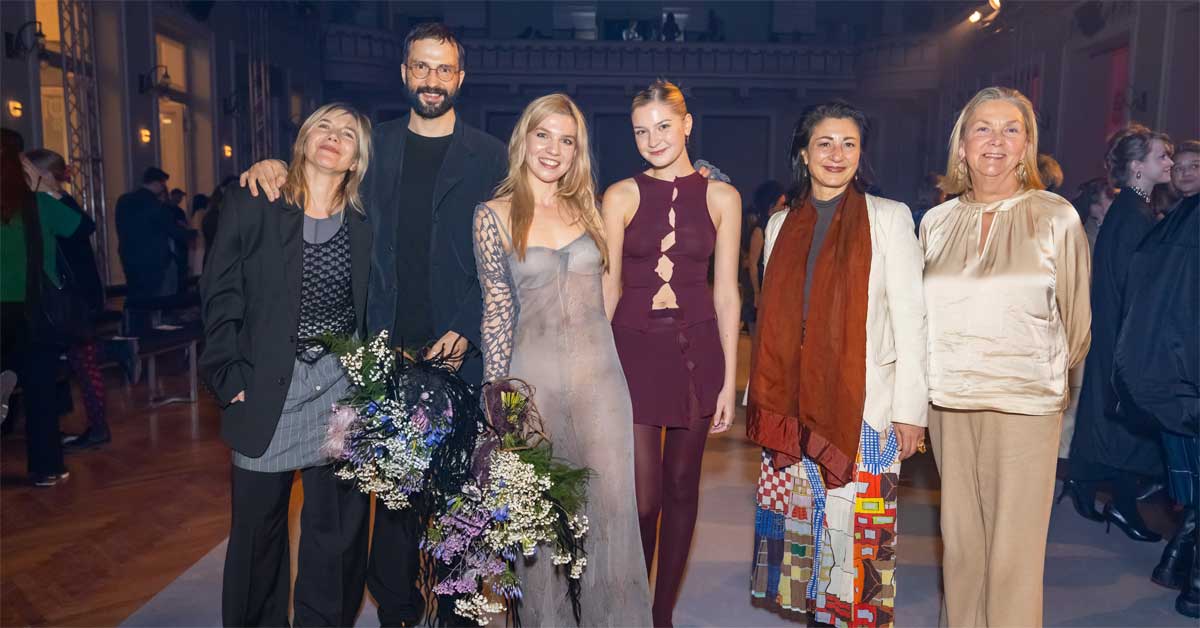

16 November 2024
 Austria is less known for fast-changing fashion styles than for the development of new materials, as practiced by companies like Lenzing (recently mentioned in an article about alpine hemp) or Alpha Tauri (article), and for fashion design from an artistic perspective for clothing and accessories that are used as a canvas to visualize social issues. Fashionable, superficial design, as some would call it in French, the chichi, is missing in Austria. The last-mentioned approach to giving substance to fashion products is that of the Austrian government, which uses taxpayers' money to promote fashion that most of the inhabitants of the country of 9 million have never heard of. An article entitled "What are the benefits of supporting local fashion?" (Was bringt die Unterstützung heimischer Mode?) in the daily newspaper Der Standard recently looked behind the scenes at the strategy pursued by a seven-person team to manage the state prize money and direct funding for designers. Der Standard reports a total of 140,000 euros per year. Now the prize money (two awards of 10,000 euros each) has been awarded to designers again. Calculated against the inflation and the increased costs for rent, energy, materials and production, the amounts appear to be sparingly budgeted. An economic cost-benefit analysis, as is common in fashion marketing, is not possible for cultural fashion projects. The goal is not to increase sales, but to create cultural awareness. The Austrian Fashion Awards 2024, held on November 14 at Vienna's Jugendstil Theater in the Otto Wagner Areal, celebrated a decade of the Austrian Fashion Association (AFA) promoting experimental and sustainable Austrian fashion. Two main awards were presented: the Fashion Award of the City of Vienna, which went to Martin Niklas Wieser, and the BMKÖS Outstanding Artist Award for Experimental Fashion Design, awarded to Christina Seewald. The event included a fashion show featuring the winners' collections as well as work by designers supported by AFA's 2023 programs. The gala highlighted innovation and sustainability, with Martin Niklas Wieser focusing on genderless, crisis-aware designs and Christina Seewald highlighting socio-political issues through contemporary knitwear. Martin Niklas Wieser approaches fashion design by asking: What is luxury today? How can we live in a world full of crises and still be convinced by the ideas of capitalism?. For Martin Niklas Wieser, who worked for designers such as Proenza Schouler before starting his own label, fashion is an experimental field to explore these questions. Knitting expert Christina Seewald, on the other hand, addresses socio-political issues that play a special role in the lives of FLINTA (women, lesbians, intersex, non-binary, trans and agender people). The evening was attended by approximately 500 guests, including artists and designers. The awards were decided by interdisciplinary juries of experts from Austria and abroad, emphasizing internationality and creativity. Runway pictures from the show and further details are published on the website of the Austrian Fashion Association on austrianfashionassociation.at. Image, from left: Camille Boyer, Director of the Austrian Fashion Association, Martin Niklas Wieser, winner of the Fashion Award of the City of Vienna, Christina Seewald, BMKÖS outstanding artist award for experimental fashion design, Tamina Katz, Atelier Manager Christina Seewald, Veronica Kaup-Hasler, Executive City Councillor for Culture and Science, Kathrin Kneißel, Head of Department IV/A Funding and International Affairs of the BMKÖS. Photo: © Thomas Lerch. |